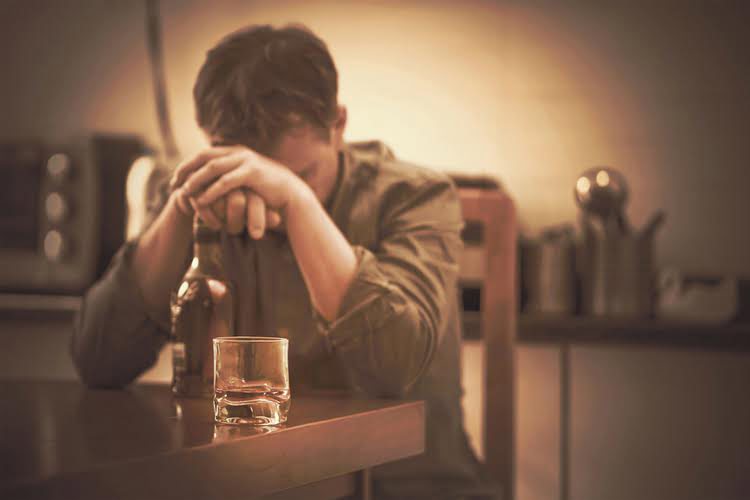Content
Sometimes, however, alcohol may not be present in blood and urine even when the impact of alcohol poisoning is still quite evident. It may seem like a person has to drink a lot to get to this stage. But if a person drinks very quickly, they can get to this stage before long. People in this stage of intoxication are very likely to forget things happening around or to them. They might “black out” without actually losing consciousness and may not be able to feel pain.
Most are men, and three in four people are between the ages of 35 and 65. Alcohol use disorder can include periods of being drunk (alcohol intoxication) and symptoms of withdrawal. The bottom line is that if you suspect alcohol poisoning in yourself or someone else, you should call for medical attention immediately rather than waiting to see if things get better on their own. One of the biggest dangers is the belief that you can tolerate a large amount of alcohol just because you have consumed that amount in the past. Your health can change, the pace of your drinking or the alcohol concentration of a favorite drink may vary, and even your ability to metabolize alcohol can change from one day to another.
Diagnosis
Genetic, psychological, social and environmental factors can impact how drinking alcohol affects your body and behavior. Theories suggest that for certain people drinking has a different and stronger impact that can lead to alcohol use disorder. Unhealthy alcohol use includes any alcohol use that puts your health or safety at risk or causes other alcohol-related problems. It also includes binge drinking — a pattern of drinking where a male has five or more drinks within two hours or a female has at least four drinks within two hours. It’s a myth that a person can recover from alcohol intoxication by sleeping, taking a cold shower, going for a walk, or drinking black coffee or caffeine. In fact, doing these things can put an intoxicated person at greater risk of injury and death.
- However, a person can feel the effects of alcohol abuse and potentially trigger alcohol poisoning, even after they’ve stopped drinking.
- These are often overlooked, perhaps because people just consider them indications of being “drunk” (i.e., they perceive the condition as impaired, but not serious).
- The Department of Health and Human Services classifies alcohol as a carcinogen, a substance that plays a role in causing cancer.
The treatment for alcoholism may be necessary if such incidents occur often. Luckily, there are many alcohol rehab centers available to provide the professional assistance in the recovery process. If the symptoms of warning signs of alcohol poisoning are ignored and left untreated, they can be detrimental to a person’s health. This is why it’s crucial to seek medical treatment immediately at any sign of alcohol poisoning.
Binge drinking
This stage can be very dangerous and even fatal if a person chokes on their vomit or becomes critically injured. It is important to keep hydrated and avoid drinking any alcohol. Men ages are the most common demographic in alcohol poisoning-related fatalities. If the alcohol poisoning is extreme, the patient can go into a coma and potentially die.

Learn more about the short- and long-term effects of alcohol consumption here. People may feel euphoric while drinking alcohol because ethanol stimulates the release of dopamine, a feel-good chemical in the brain. This effect on the brain’s dopamine system can lead to alcohol dependence. Although people can safely consume alcohol without experiencing immediate adverse health effects, long term alcohol consumption can jeopardize overall health. Treatment providers are available 24/7 to answer your questions about rehab, whether it’s for you or a loved one. Submit your number and receive a free call today from a treatment provider.
What is Alcohol Poisoning Treatment?
There are a number of issues that interfere with the timely diagnosis of alcohol poisoning, and delays can worsen the consequences. Symptoms and potential risks and complications of ingesting too much alcohol largely stem from the effect on the brain and blood vessels. Rapid fluid ingestion can be harmful in and of itself, as it can alters the fluid concentration in the body, potentially disrupting fluid and electrolyte balance. Call 911 or go to the nearest hospital if you notice signs of alcohol poisoning.
Alcohol poisoning also can occur when adults or children accidentally or intentionally drink household products that contain alcohol. Ethanol also increases levels of adenosine, an inhibitory neurotransmitter that promotes sleep. Additionally, some drinks, such as mixed drinks, can have more than one serving of alcohol in them. This can make it harder to keep track of how much alcohol you’ve actually consumed. Reach out to a treatment provider for free today for immediate assistance. His work has appeared in publications including The Guardian, Euronews, and VICE UK.
If a person has consumed one or less drinks per hour, they’re considered to be sober, or low-level intoxicated. According to the Centers for Disease Control and Prevention (CDC), there are 2,200 alcohol poisoning deaths in the United States each year. When somebody consumes an alcoholic drink, their liver has to filter out the alcohol, a toxin, from their blood. If a person suspects someone has alcohol poisoning they should call an ambulance. They should follow the below advice until medical assistance arrives. Alcohol poisoning can be life threatening and usually requires urgent medical treatment.

This keeps any leftover alcohol from getting into your bloodstream. Alcoholic drinks contain a form of alcohol known as ethyl alcohol or ethanol. Other kinds that you might have around the house, like isopropyl alcohol (rubbing alcohol) and methanol (wood alcohol), are toxic in a different way. However, when peer pressure begins or drinking becomes more out of control, your health can be at risk.
What to Do If You Think Someone Has Alcohol Poisoning
It is dangerous to assume that an unconscious person will be fine by sleeping it off. One potential danger of alcohol overdose is choking on one’s own vomit. Alcohol at very high levels can hinder signals in the brain that control automatic responses, such as the gag reflex. With no gag reflex, a person who drinks to the https://ecosoberhouse.com/article/cognitive-behavioral-therapy-cbt-for-addiction-and-substance-abuse/ point of passing out is in danger of choking on their vomit and dying from a lack of oxygen (i.e., asphyxiation). Even if the person survives, an alcohol overdose like this can lead to long-lasting brain damage. As blood alcohol concentration (BAC) increases, so does the effect of alcohol—as well as the risk of harm.
- Be aware of the alcohol content of what you’re drinking and adjust how much you drink based on this knowledge.
- People in this stage of intoxication are very likely to forget things happening around or to them.
- Keep reading to learn more about alcohol intoxication, including its causes, symptoms, and treatments.
- It causes physical and behavioral symptoms that range from mild to severe.

